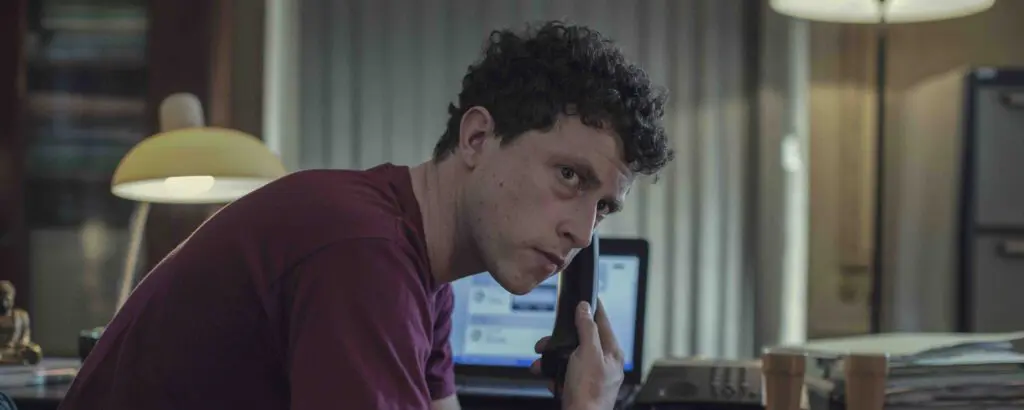Summary
“Inès” shifts the focus in Gone for Good, a necessary change showing the bonds of grief, loss, and love.
This recap of the Netflix series Gone for Good episode 2, “Inès”, contains spoilers.
In Harlan Coben’s newest adaptation from Netflix, Gone for Good, the first episode opens with a murder. The second episode, “Inès,” opens with the same murder, seen through the eyes of a neighbor, a young girl who loses her sister, her protector, her best friend. Inès (Garance Marillier), now ten years older and studying psychology, becomes the focal point, along with Guillaume (Finnegan Oldfield) of the French-language series from creators David Elkaïm and Vincent Poymiro.
Gone for Good episode 2 recap
Again, the series jumps from year to year, bouncing between 2007 (when Guillaume and Sonia, Inès’s older sister, were still in a relationship), 2010 (the murders), and present-day. Guillaume continues to search for his current girlfriend, Judith (Nailia Harzoune). Young Inès struggles with nightmares and visions of her bloody, deceased sister, reconciling with her grief over the course of the episode. In the present, she sees Guillaume for the first time in a long time, clearly having matured, harboring odd feelings towards her sister’s ex-boyfriend, who experienced the pain of losing a sibling on the same night. Together, they search for Judith, with Daco (Guillaume Gouix) joining the hunt.
Guillaume, already with a mountain on his mind, learns from his sister that his mother was keeping secrets from his father and the rest of the family. She pulled out large amounts of money over the previous months and years, meeting with someone with the initials of JMD. The siblings find another meeting scheduled for later that day, rushing to a restaurant to confront a man who turns out to be a private investigator hired to find their supposedly dead brother. He explains that there have been sightings of Fred (Nicolas Duvauchelle) around Europe, and even though he was shot into the water in 2010, he might have survived. Furious, they leave, as any siblings would.
The rest of the episode concerns itself with Judith’s past, an unknown entity throughout her and Guillaume’s relationships. Through a bit of digging and lots of chatting with random folks, the group learns that Judith and Sonia knew each other, being roommates in Spain when they were both in their late teens, early 20s. They partied together, ran with high-profile drug dealers, with Judith eventually becoming a prostitute. In an attempt to learn more, Guillaume and Daco break into the house of a woman and Louis Menighetti, the pimp that recruited Judith and kept her in his grasp. A weak, horrid, and dying man, he seems like the worst type of person: smug in his decisions, happy with his actions, despite the sick ramifications. But they learn little from him, and so, continue forward.
After finding Judith’s phone and thinking they’ve made a breakthrough, the trio learns that Judith has been killed. Once again, Guillaume has lost a person he loves. It’s heartbreaking, despite her constant links with death, drugs, and crime. And so, the second episode ends much like the first, with Guillaume in full despair, though Inès stays by his side and in his apartment, with the final shot showing her unsure, worried, confused face.
Stronger than the first in pacing, Gone for Good episode 2 relieves the load on Guillaume’s shoulders, placing the camera in front of another willing, scared, hurt face in Inès. By expanding this intersection of families and friends, many of which have now passed on, Gone for Good becomes more than just a one-man show. It becomes a world filled with secrets, pasts, and collective trauma, highlighting the moments of pain that bind us to one another. Connected by death and not life, Inès and Guillaume make an obvious pairing, despite their Everest-level pain existing deep inside them.
The show keeps unspooling itself with measured surprises and reveals, startling by simply giving information that wasn’t yet known. Throughout this episode, very little actually happens to these characters. It consists of them reacting to news together, sharing in the burden of lies coming to the surface. The show still moves forward by reaching into the past.
Highs:
- Inès dealt with her pain as a young girl with an immense amount of maturity. And she even hugged the ghost of her dead sister.
- Inès grew up to look cooler than her sister.
- Private investigators. JMD made a whole lot of money over the years by looking for a man that most likely is already dead.
- Cafés by the water! Always lovely.
Lows:
- Inès keeps being told that she looks like Sonia, a reminder of her sister’s death every few days.
- Guillaume. Wow, he’s got it bad.
- Daco’s pregnant wife, who can’t seem to convince him that he’ll be a good father.
Ramblings:
- Inès runs out of her therapist’s office when she realizes who Judith is, and because therapy is expensive, she really should have just stayed until the end.
- Her sister’s cell phone, which she buried 10 years prior, still works. A miracle of technology that makes little sense.
- Can you track a random person’s phone? They do this with Judith’s cell on a computer that looks like it’s from the 2000s.
- At one point, the siblings say their mother took out $69,000, and somewhere Lin-Manuel Miranda smiled.
What did you think of the Netflix series Gone for Good episode 2? Comment below.



